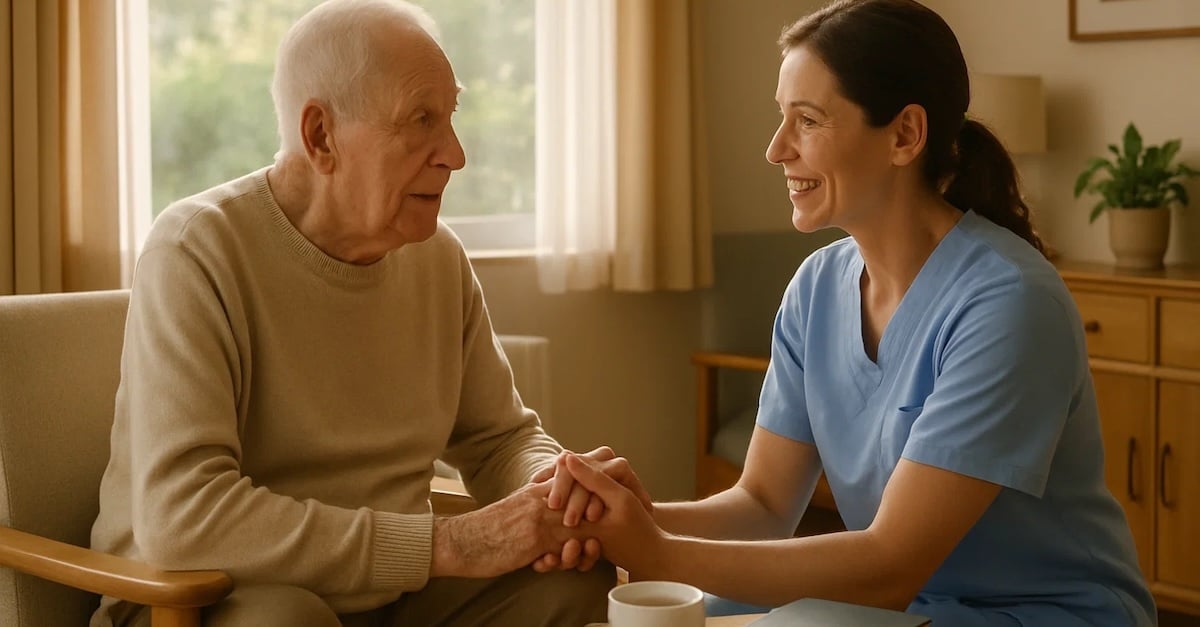Experience Is the Best Teacher: How Dementia Simulations Are Shaping the Future of Empathy in Care

It’s one thing to know what dementia is. It’s another thing to feel it.
Many of us have loved ones who have been affected by Alzheimer’s or other forms of dementia. Yet even for those in healthcare or caregiving professions, understanding what someone with dementia actually experiences can be difficult to grasp. That’s why immersive simulation training is fast becoming one of the most powerful tools in dementia education—and why schools, healthcare systems, and community organizations are investing in it like never before.
This kind of training doesn’t start with textbooks or lectures. It starts with an invitation:
Imagine you have dementia.
You’re in a room. The lights are dim. Your vision is impaired by tinted glasses, your fingers are numb through thick gloves, and disorienting sounds blare through noise-canceling headphones. You’re asked to perform basic tasks. It should be simple, but it’s not.
The experience is overwhelming, frustrating—even frightening. And that’s the point.
Why Simulating Dementia Matters
Experiential education is more than a teaching method—it’s a mindset shift. For caregivers, professionals, and students preparing to enter aging services or healthcare, empathy is not a soft skill—it’s a cornerstone of quality care. Dementia simulations like Dementia Live® provide a tangible way to build empathy by mimicking the sensory and cognitive changes that individuals living with dementia often experience.
Through simulation, participants are able to:
-
Recognize how disorientation, fear, and confusion can affect behavior
-
Practice patience and emotional regulation in real-time scenarios
-
Learn practical tools to improve communication and reduce stress in care situations
-
Walk away with a deeper emotional connection to the realities of cognitive decline
A Crucial Tool for the Next Generation
One of the most exciting shifts in recent years is how these programs are finding their way into higher education settings. Colleges and universities that offer courses in nursing, social work, gerontology, and public health are embedding dementia training into their curriculum to prepare students with not just technical skills, but relational depth.
At institutions like Northern Illinois University, students participate in Dementia Live simulations as part of their coursework. For many, it’s a transformative experience.
“This is something all students should continue to participate in. It’s an experience I will remember moving into my career, and even as a human being,” one student shared.
The takeaway? Students aren’t just learning about the biology of aging—they’re learning how to lead with understanding and dignity. For an industry desperate for more compassionate, capable dementia professionals, that’s a win on every level.
Building Compassionate Communities
Dementia Live and similar programs aren’t limited to educational institutions. Community organizations, senior living centers, first responder agencies, and faith-based groups are turning to simulation to strengthen their care practices.
Because dementia doesn’t just live in hospitals or memory care units—it lives in our homes, neighborhoods, and churches. Empowering more people to get inside the experience leads to more patient conversations, more respectful interactions, and more responsive systems of care.
From Awareness to Action
The beauty of simulation is that it doesn’t stop with awareness—it inspires action. After completing a Dementia Live session, participants often ask:
-
“How can I better support someone I know living with dementia?”
-
“What changes can I make in my organization to improve care?”
-
“How do I help others understand what I’ve just experienced?”
These questions are the catalyst for systemic change—whether that’s adjusting communication protocols, rethinking physical space layouts, or implementing broader caregiver support strategies. In this way, simulation becomes a cultural driver, not just a training tool.
Why It’s Worth the Investment
As we look at the future of dementia care—particularly in a society with an aging population—educating the next generation of care providers is more important than ever. The investment in immersive training pays off in empathy, confidence, and connection.
And while the experience may only last 10 or 15 minutes, the shift it creates in someone’s mind and heart can last a lifetime.
Programs like Dementia Live remind us that the best way to understand someone else’s reality is to walk in their shoes—even for just a moment.
It’s not just training.
It’s transformation.

%20(3).jpg)
